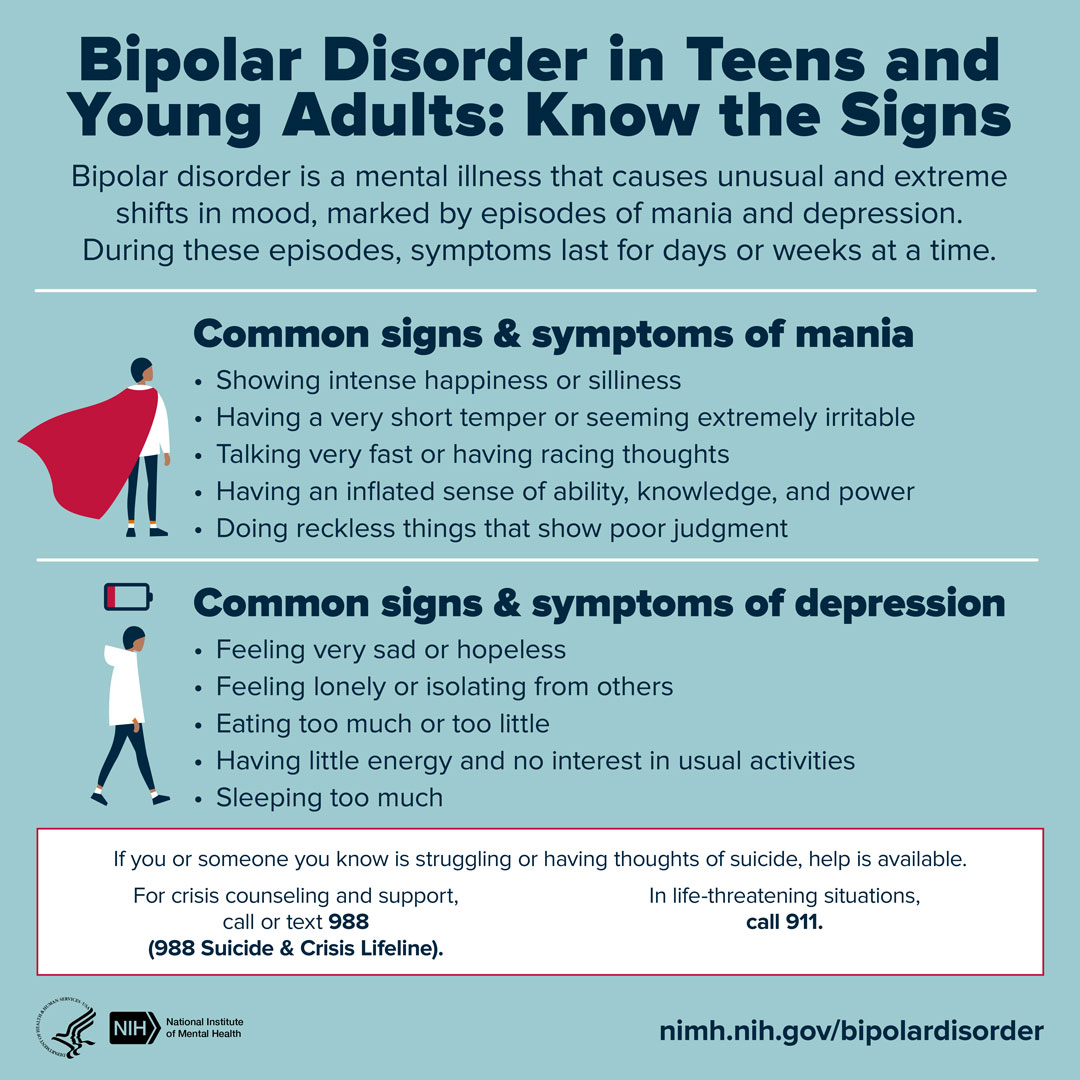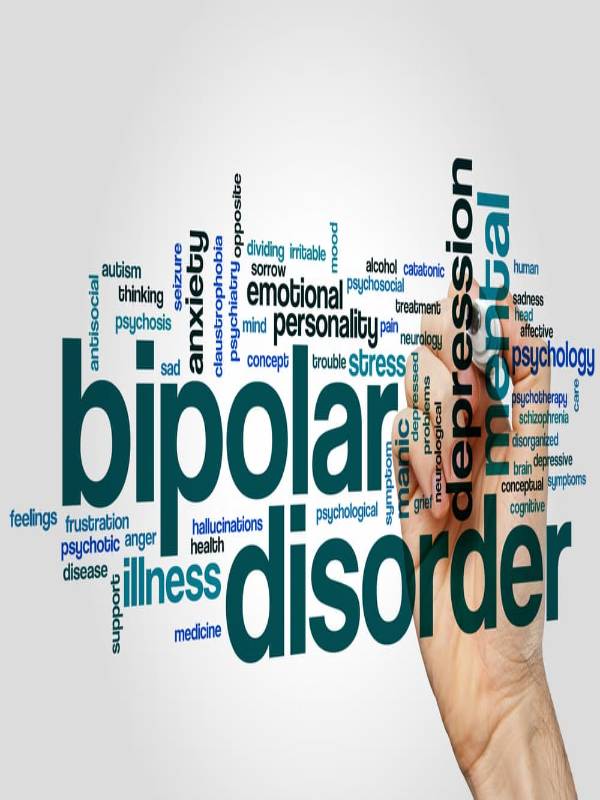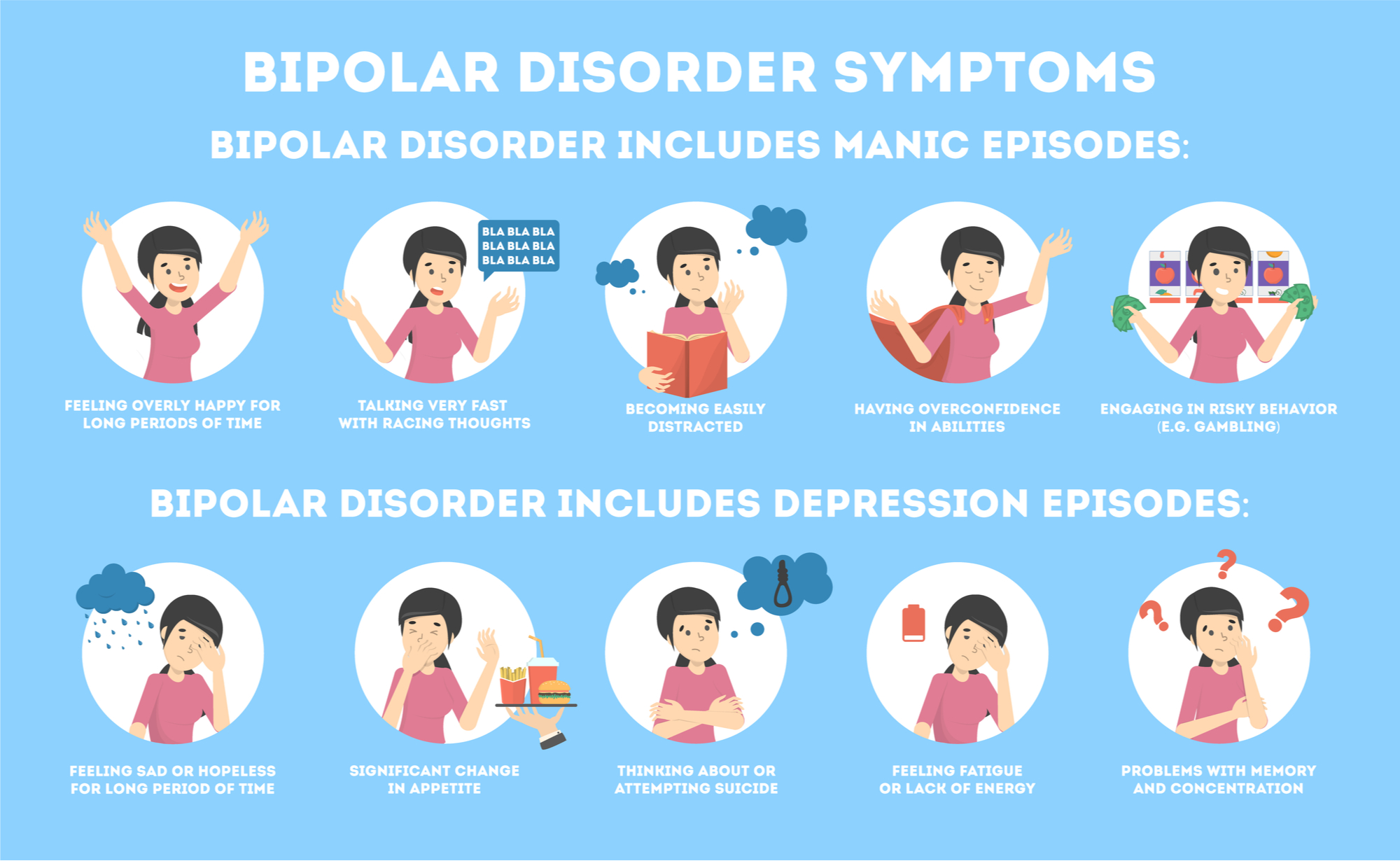Table of Contents
- Bipolar Disorder | Bluehaven Psychiatry PLLC
- Bipolar disorder: what is it? - MindStick YourViews – MindStick YourViews
- How to Recognize the Signs of Bipolar Disorder in Children - Ask The ...
- Healthy N Fit: Tips to treat Bipolar disorder
- Bipolar Disorder Printable Information
- How to Treat Bipolar Disorder | Bipolar Disorder Treatment
- Mental Health: How to Prevent Bipolar Disorder Symptoms, Know Effective ...
- Bipolar disorder: Symptoms, causes, types, and treatment
- Bipolar Disorder Symptoms, Causes and Treatment Options - E-Bipolar
- November 2019 – Page 3 – Intro Psych Blog (F19)_Group 7



What is Bipolar Disorder?



Symptoms of Bipolar Disorder



Treatment Options
The NIMH emphasizes the importance of seeking professional help if symptoms of bipolar disorder are present. Treatment options may include: Medications: Mood stabilizers, antipsychotics, and antidepressants can help manage symptoms. Psychotherapy: Cognitive-behavioral therapy, family-focused therapy, and interpersonal therapy can help individuals cope with the condition. Lifestyle Changes: Regular exercise, healthy eating, and stress management techniques can help alleviate symptoms.Research and Resources
The NIMH is committed to advancing our understanding of bipolar disorder through research. The institute funds studies on the causes of the condition, as well as the development of new treatments. The NIMH also provides a wealth of resources for individuals and families affected by bipolar disorder, including: Publications: Booklets, fact sheets, and brochures on bipolar disorder. Online Resources: Websites, online support groups, and hotlines. Clinical Trials: Opportunities to participate in research studies. Bipolar disorder is a complex and challenging condition, but with the right treatment and support, individuals can manage their symptoms and lead fulfilling lives. The National Institute of Mental Health is a trusted source of information and resources on bipolar disorder, providing valuable insights and guidance for those affected by the condition. If you or someone you know is struggling with bipolar disorder, don't hesitate to seek help. With the right support and treatment, it is possible to manage the condition and improve overall mental health and well-being.For more information on bipolar disorder and other mental health conditions, visit the National Institute of Mental Health website.